
Ngog Lituba: The Sacred Rock of Cameroon
Ngog Lituba, located in the heart of Cameroon, is a revered site known for its rich cultural and historical significance. This giant rock formation stands as a testament to the spiritual beliefs of the local Bassa people, who consider it a sacred place. Visitors to Ngog Lituba are often struck by the serene atmosphere and the sense of connection to ancient traditions that still thrive in the area. The journey to Ngog Lituba takes you through lush landscapes and picturesque villages, offering a glimpse into the rural life of Cameroon. The rock itself is surrounded by legends and folklore, making it a fascinating destination for those interested in anthropology and history. Many locals believe that the rock has mystical powers and that it is a gateway to the ancestors, adding an aura of mystery and reverence to your visit. While exploring Ngog Lituba, you can also interact with the local communities, who are known for their warm hospitality. They often share stories and traditional practices, providing a deeper understanding of the cultural significance of this majestic rock. Whether you are an adventurer, a history buff, or simply someone looking to experience the spiritual side of Cameroon, Ngog Lituba offers a unique and enriching travel experience.
Local tips in Ngog Lituba
- Visit early in the morning to avoid the midday heat and enjoy a peaceful experience.
- Engage with local guides to learn about the legends and historical significance of the rock.
- Bring comfortable walking shoes as the terrain can be uneven.
- Respect local customs and traditions, especially when interacting with the community.
Ngog Lituba: The Sacred Rock of Cameroon
Ngog Lituba, located in the heart of Cameroon, is a revered site known for its rich cultural and historical significance. This giant rock formation stands as a testament to the spiritual beliefs of the local Bassa people, who consider it a sacred place. Visitors to Ngog Lituba are often struck by the serene atmosphere and the sense of connection to ancient traditions that still thrive in the area. The journey to Ngog Lituba takes you through lush landscapes and picturesque villages, offering a glimpse into the rural life of Cameroon. The rock itself is surrounded by legends and folklore, making it a fascinating destination for those interested in anthropology and history. Many locals believe that the rock has mystical powers and that it is a gateway to the ancestors, adding an aura of mystery and reverence to your visit. While exploring Ngog Lituba, you can also interact with the local communities, who are known for their warm hospitality. They often share stories and traditional practices, providing a deeper understanding of the cultural significance of this majestic rock. Whether you are an adventurer, a history buff, or simply someone looking to experience the spiritual side of Cameroon, Ngog Lituba offers a unique and enriching travel experience.
When is the best time to go to Ngog Lituba?
Unmissable attractions to see
Eco Park.
Explore Eco Park, a tranquil haven in Yaoundé, showcasing Cameroon’s rich biodiversity amidst serene landscapes and lush greenery.
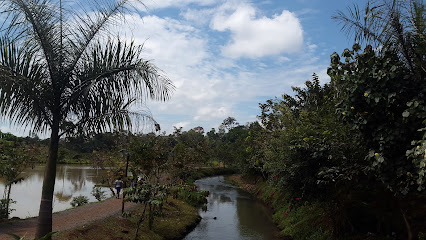
Municipal Lake
Experience the tranquility of Municipal Lake in Yaoundé, a perfect blend of nature and relaxation for every traveler.
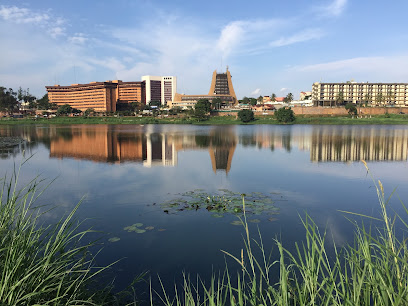
Statue of Charles Atangana
Explore the Statue of Charles Atangana, a significant historical landmark that embodies the culture and history of Yaoundé, Cameroon.
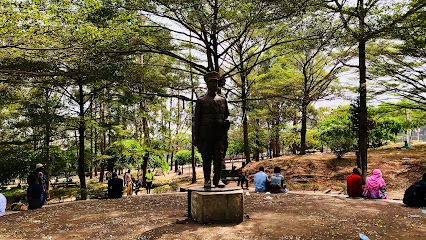
Musée Ethnographique et d'Histoire des Peuples de la Forêt d'Afrique Centrale
Explore the rich cultural heritage of Central Africa at this unique museum in Yaoundé, showcasing the artifacts and stories of indigenous peoples.
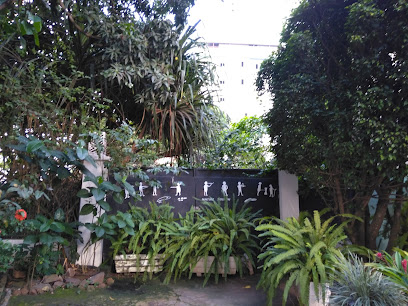
Blackitude Museum
Discover the vibrant culture of Cameroon at the Blackitude Museum, where art, music, and history come alive in Yaoundé's cultural heart.
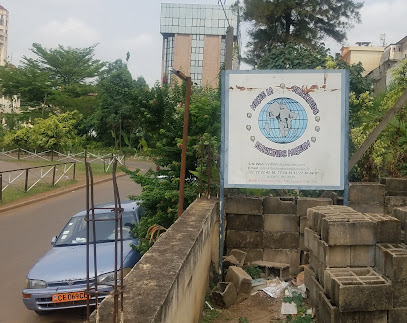
Carrefour Boumnyebel
Experience the vibrant local culture and unique shopping at Carrefour Boumnyebel, a top tourist attraction in Cameroon.
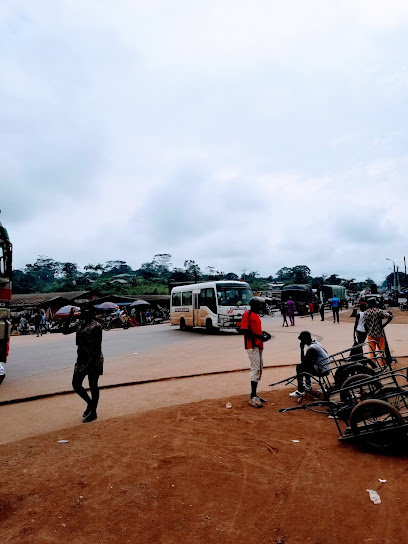
arrêt first national express of safety
Explore the First National Express of Safety in Makak, a cultural gem reflecting community spirit and commitment to safety in Cameroon.
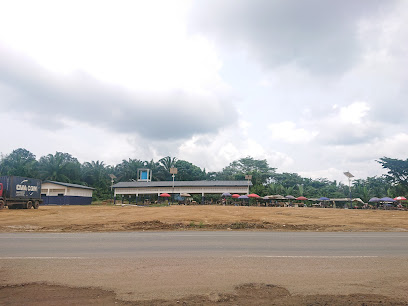
Ferme Agro Touristique De Bilone
Experience the heart of Cameroonian agriculture at Ferme Agro Touristique De Bilone, where family-friendly activities and local traditions come alive.
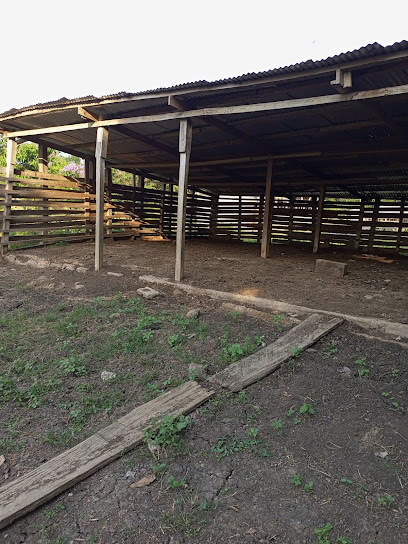
Nkolve centre
Discover the vibrant culture, stunning landscapes, and welcoming atmosphere at Nkolve Centre in Lebamzib, a must-see tourist attraction.
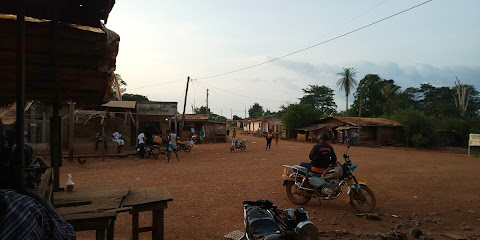
Carrefour Douanier
Explore Carrefour Douanier in Nkongoa for a vibrant cultural experience filled with local crafts, cuisine, and the heart of Cameroonian life.

Monatele Lekie, avenue Place de fête
Experience the cultural vibrancy of Élon at Monatele Lekie, a must-visit attraction that offers a taste of Cameroonian heritage and community spirit.
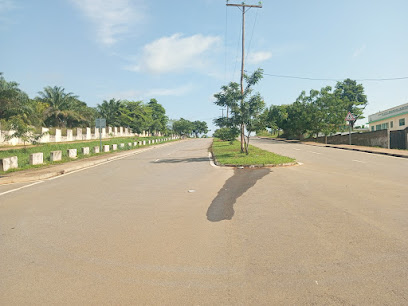
Ngog litouba
Experience the breathtaking beauty and rich culture of Ngog Litouba, a remarkable tourist attraction in Nyambat, Cameroon, perfect for nature lovers and cultural explorers.
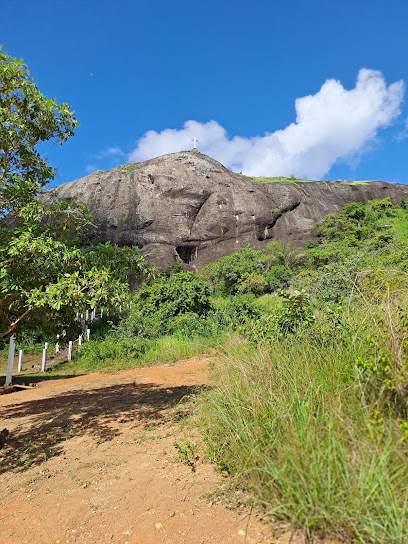
Carrefour Muandi Ebang
Explore Carrefour Muandi Ebang for an authentic taste of local culture, vibrant shopping, and delicious street food in Soa, Cameroon.
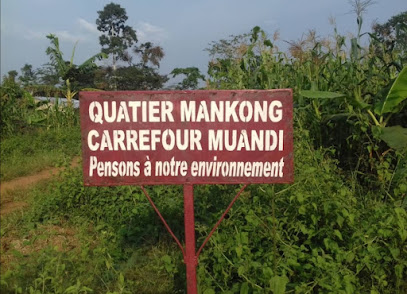
Carrefour Nkol Essono
Experience the vibrant culture of Nkolbogo II at Carrefour Nkol Essono, a bustling hub for shopping, dining, and local interactions.

Love stone
Explore Love Stone in Yaoundé, a natural wonder steeped in romance and rich cultural heritage, perfect for an unforgettable visit.
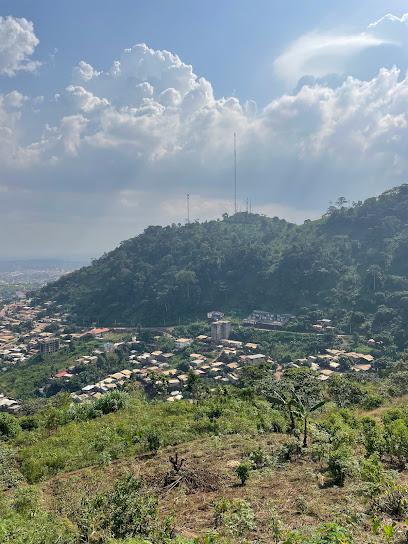
Essential places to dine
Boukarou Lounge
Discover the vibrant flavors and live music at Boukarou Lounge in Yaoundé, where every meal is a celebration of Cameroonian culture.
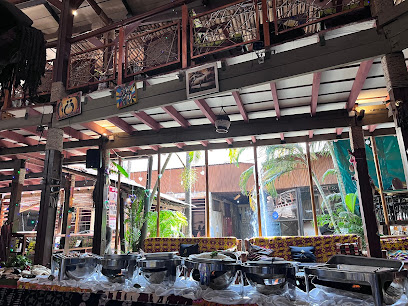
Restaurant La Référence Chez Wouri
Discover authentic West African cuisine at Restaurant La Référence Chez Wouri in Yaoundé - a culinary journey filled with rich flavors and local traditions.
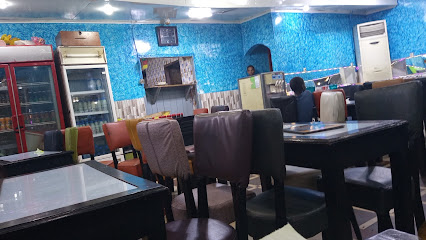
Kennys Great House
Discover authentic Cameroonian cuisine at Kenny's Great House in Yaoundé—where exceptional service meets local flavor.
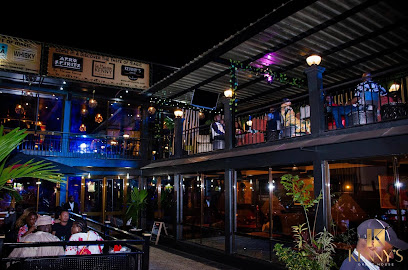
Level Up Lounge
Discover the vibrant flavors of barbecue at Level Up Lounge in Yaoundé – where every dish offers a taste of Cameroonian culinary traditions.
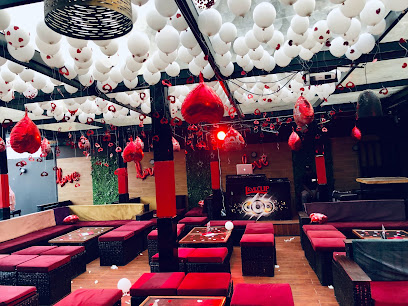
Restaurant La P'tite Bouffe
Experience the vibrant flavors of Cameroonian and international cuisine at Restaurant La P'tite Bouffe in Yaoundé.
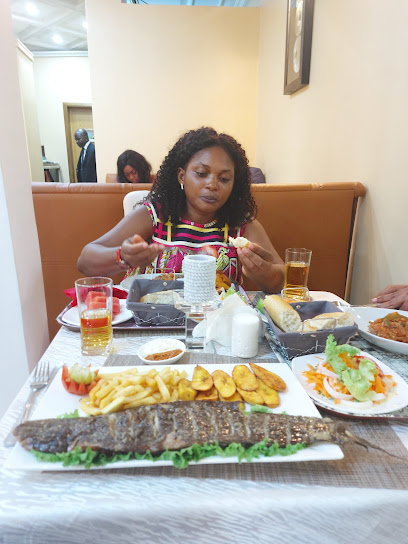
Tassa
Discover Tassa in Yaoundé - where local flavors meet international flair in a stunning dining atmosphere.
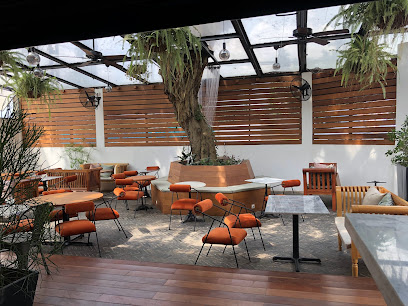
Restaurant Le Carnivore (by Drinks Center)
Experience authentic Cameroonian cuisine at Restaurant Le Carnivore in Yaoundé - where every meal tells a story.
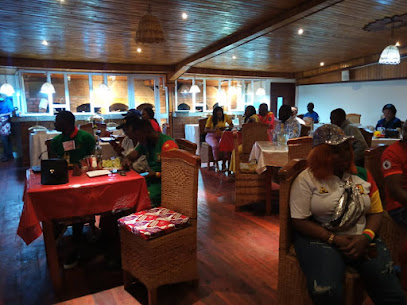
MARCO FUFU
Experience authentic Cameroonian cuisine at Marco Fufu in Yaoundé – where every dish tells a story.
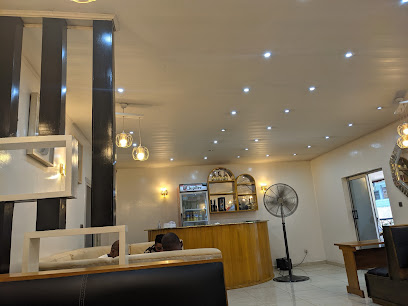
BETMOMO RESTAURANT LOUNGE
Discover Betmomo Restaurant Lounge: A Culinary Haven in Yaoundé's Quartier Bastos Offering Exquisite Dishes & Inviting Atmosphere.
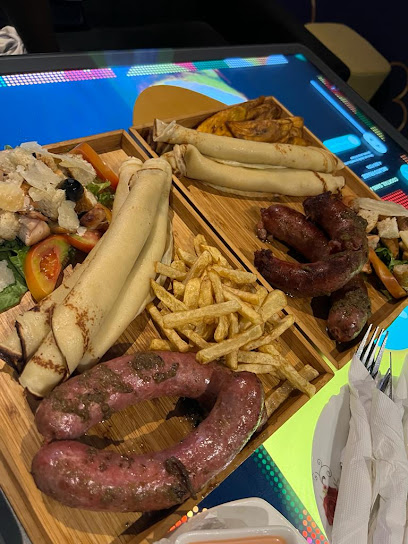
Network Restaurant & Lounge
Experience culinary delights at Network Restaurant & Lounge in Molyko, Buea – where local flavors meet international cuisine.
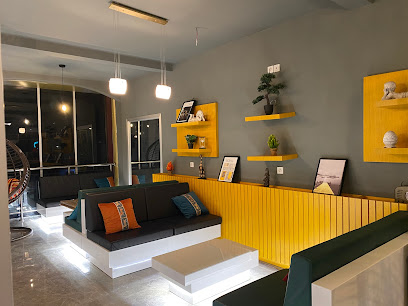
EDEN FOODS RESTAURANT
Discover the exquisite flavors of Cameroon at Eden Foods Restaurant in Yaoundé - where culinary traditions meet modern dining.
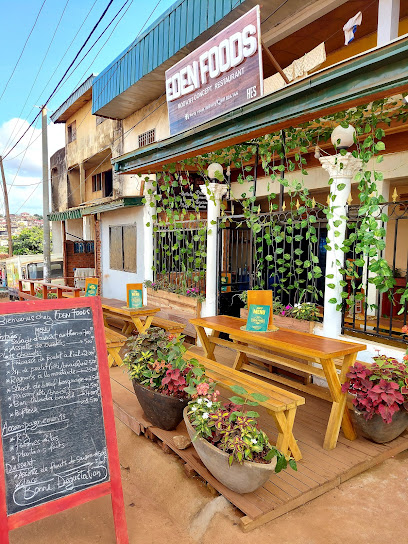
Restaurant Ma Table
Experience authentic Cameroonian cuisine at Restaurant Ma Table in Yaoundé - where every dish tells a story.
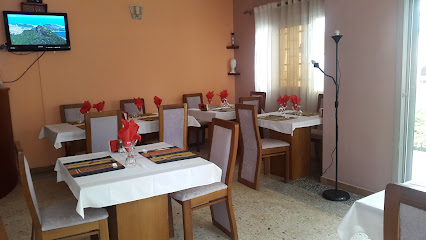
Le Restaurant Bayama Obala
Discover the vibrant flavors of Cameroon at Le Restaurant Bayama Obala - where delicious grilled dishes meet refreshing drinks in a welcoming atmosphere.
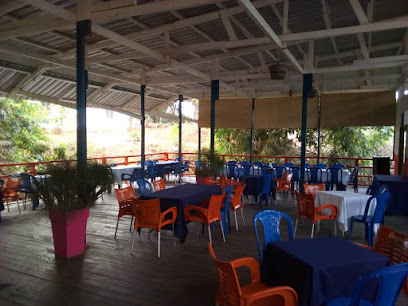
LE PEPEH
Discover the authentic flavors of Cameroon at Le Pepeh in Yaoundé, where delicious cuisine meets inviting ambiance.
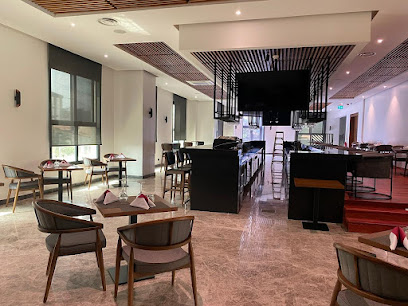
DADA Restaurant
Discover the vibrant flavors of Cameroon at DADA Restaurant in Limbe - where local meets international cuisine in an inviting atmosphere.
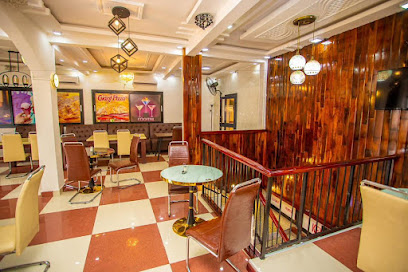
Markets, malls and hidden boutiques
China Mall Ndokoti
Discover the vibrant shopping experience at China Mall Ndokoti, Douala's premier destination for local crafts, cuisine, and culture.
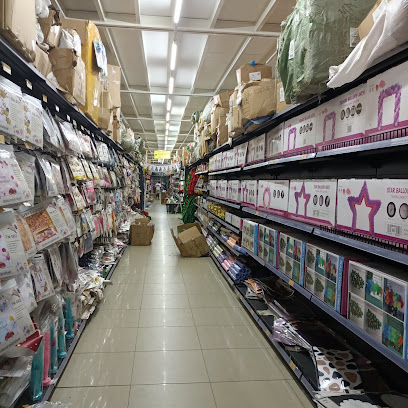
ORCA Yaoundé
Explore ORCA Yaoundé: A vibrant shopping mall offering local and international brands, dining, and a taste of Cameroonian culture.
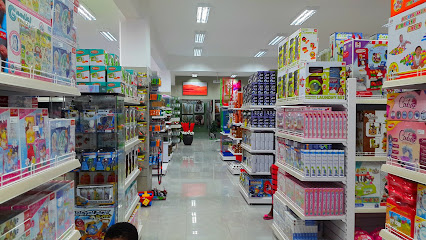
GLOTELHO Boutique Officielle Yaounde (Calafatas)
Explore the best in electronics at GLOTELHO Boutique in Yaoundé, where quality meets innovation for tech lovers and tourists.
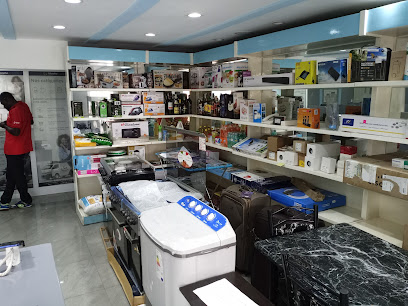
KWIZA
Discover the latest in electronics at KWIZA, Yaoundé's premier hub for technology and gadgets.
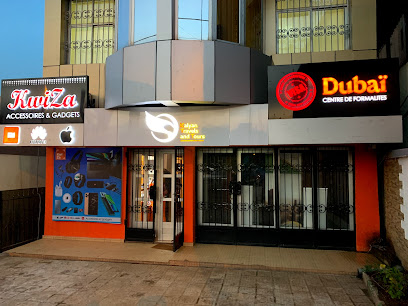
Marché du jeudi de SA'A
Explore the vibrant Marché du jeudi de SA'A, a bustling produce market in Nkolmesing, rich in local culture and fresh flavors.
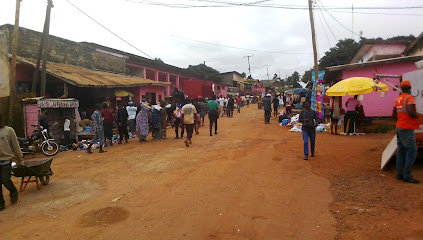
Marché De NDOUPE
Immerse yourself in the local culture at Marché De NDOUPE, a lively produce market in Sombo, Cameroon, bursting with fresh flavors and vibrant community spirit.
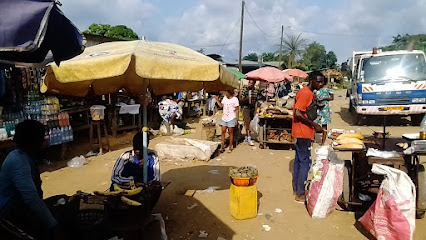
Boutique Orange FÉBÉ VILLAGE
Explore the latest in mobile technology at Boutique Orange FÉBÉ VILLAGE, your one-stop shop for connectivity in Yaoundé.
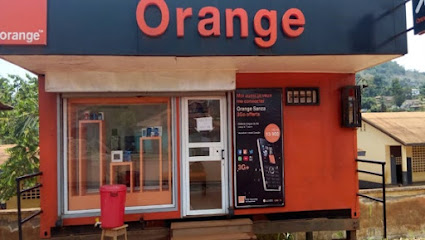
The Dina Shop
Explore unique clothing and accessories at The Dina Shop, a vibrant boutique in Yaoundé that showcases the essence of Cameroonian fashion.
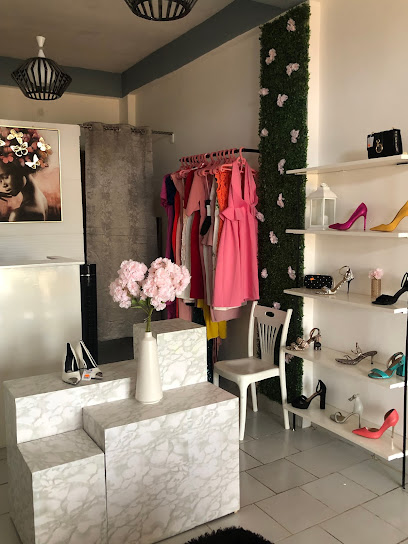
MOLLA SHOPPING
Explore the vibrant styles of Molla Shopping in Douala, a must-visit clothing store offering local and contemporary fashion trends.
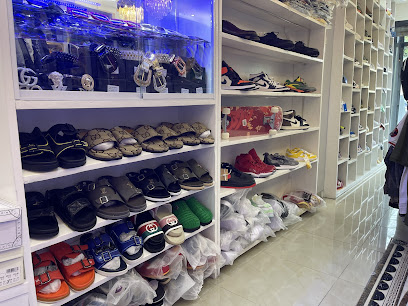
EVALOVE SHOP
Discover the elegance of EVALOVE SHOP in Yaoundé, where fine wines meet luxurious cosmetics and exquisite jewelry.
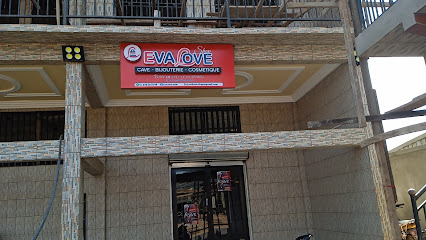
Marché artisanal de tsinga
Explore the vibrant Marché artisanal de Tsing in Yaoundé for handmade crafts, unique gifts, and a taste of Cameroonian culture.
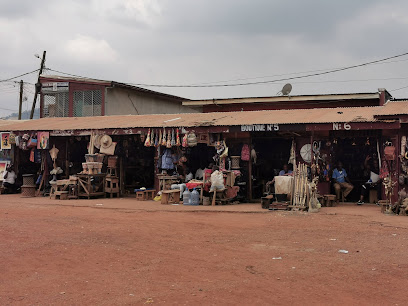
Beteck
Explore the vibrant culture of Cameroon through unique gifts at Beteck Gift Shop in Yaoundé, a must-visit destination for every traveler.
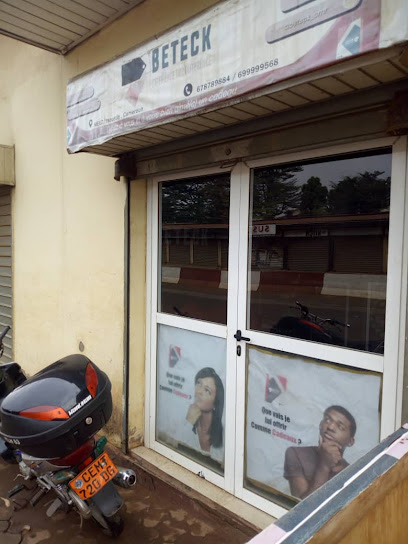
Boutique de Mr André
Discover unique local craftsmanship at Boutique de Mr André in Efok, where every item tells a story of Cameroon’s rich culture.

Elig-Mfomo
Explore Elig-Mfomo Shopping Mall in Nachtigal - a vibrant blend of local culture, unique shops, and delicious dining options.

LIMAS KLOSET
Discover unique fashion and local craftsmanship at LIMAS KLOSET in Buea, a boutique that embodies the vibrant spirit of Cameroonian culture.
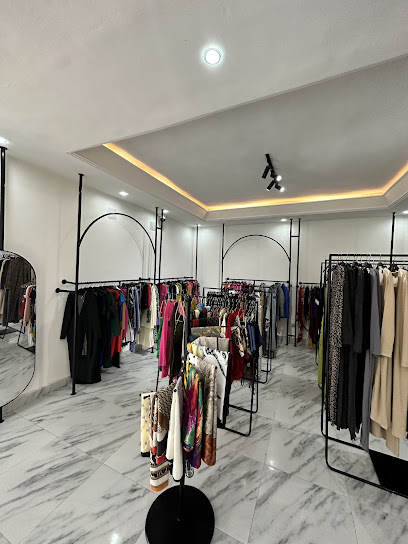
Essential bars & hidden hideouts
Bonanjo Plus, Emana
Experience local flavors and vibrant nightlife at Bonanjo Plus, a lively bar in Emana, Yaoundé, perfect for unwinding and socializing.

Sweet Life
Discover Sweet Life, a lively bar in Obala, perfect for socializing and enjoying local drinks in a vibrant atmosphere.
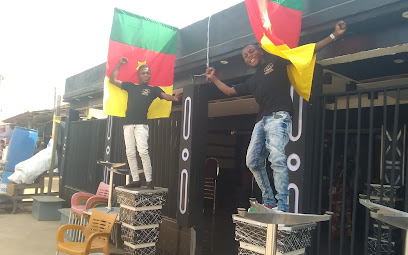
club matango
Discover the vibrant nightlife of Yaoundé at Club Matango, where affordable drinks and a lively atmosphere await every traveler.
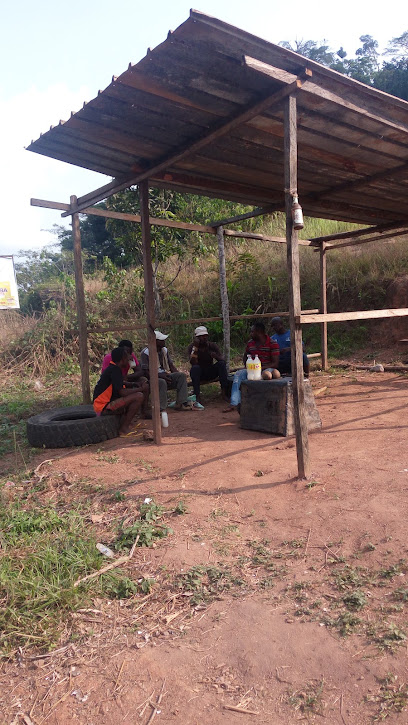
Evelyne Bar
Experience the vibrant nightlife at Evelyne Bar in Tayap, where locals and tourists alike gather for refreshing drinks and great conversations.
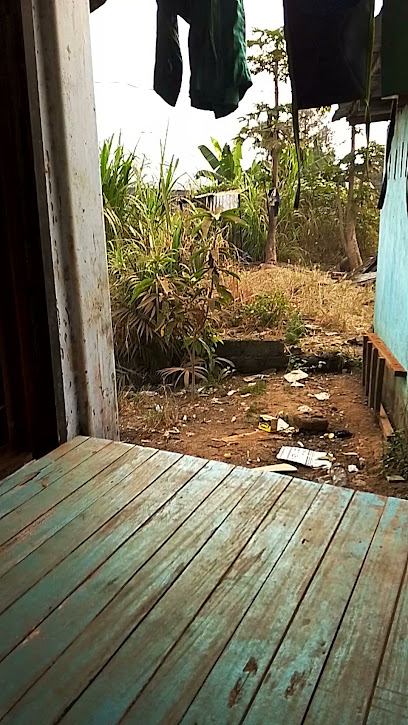
Secteur Bar
Discover the lively ambiance of Secteur Bar in Bafia, a perfect blend of local culture and refreshing drinks for an unforgettable night out.
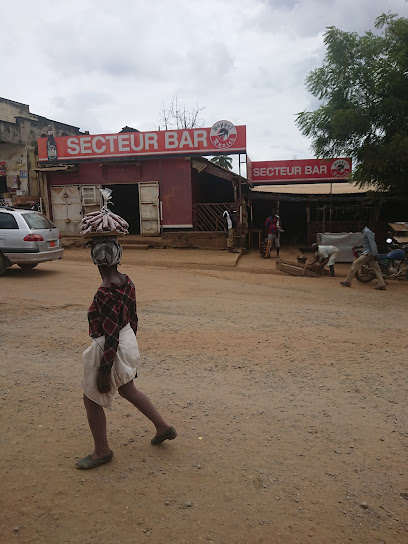
Alimentaire bar grillage de l'échangeur
Discover the vibrant flavors and welcoming atmosphere of Alimentaire Bar Grillage de l'Échangeur in Obala, a must-visit for any traveler.

Le Vatican Bar
Discover the vibrant nightlife at Le Vatican Bar in Cameroun, where local culture meets a lively atmosphere and delicious drinks await.
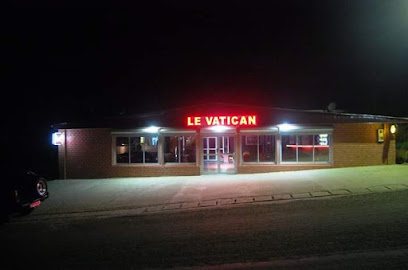
Central bar d'Emana
Discover the lively atmosphere and local flavors at Central Bar d'Emana in Monatele, a must-visit for tourists seeking a taste of local nightlife.

Colonel Nlen
Experience the vibrant nightlife at Colonel Nlen, a premier bar in P10, where local culture and fun converge for an unforgettable evening.
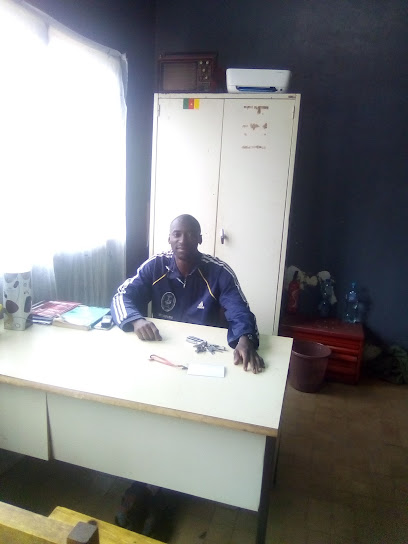
BUNKER Bar de SA'A
Discover the lively ambiance and local flavors at BUNKER Bar de SA'A, the ultimate bar experience in Nkolmesing.

Chez Buteur Bar
Experience the charm of Pouma at Chez Buteur Bar, where local flavors and friendly vibes come together for an unforgettable evening.
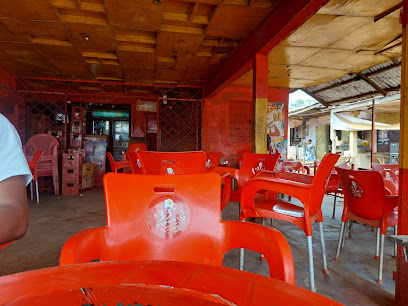
Salon ndjomo emende bar
Immerse yourself in the vibrant nightlife at Salon Ndjomo Emende Bar, where camaraderie and culture meet over delightful drinks in Cameroon.

Parc des princes
Experience the lively atmosphere and local charm at Parc des Princes, a vibrant bar in Monatele perfect for unwinding and socializing.

Justine BAR
Experience the vibrant nightlife at Justine BAR in Mbasila, where local flavors and a lively atmosphere come together for an unforgettable night out.

Local Phrases about Ngog Lituba
-
- HelloMbote
[m-boh-teh] - GoodbyeKwaheri
[kwah-heh-ree] - YesEe
[eh] - NoTe
[teh] - Please/You're welcomeMboté
[m-boh-teh] - Thank youEshe
[eh-sheh] - Excuse me/SorrySambe
[sahm-beh] - How are you?Unjani?
[oon-jah-nee] - Fine. And you?Ndiyabonga. Wena?
[ndee-yah-bohn-gah. weh-nah] - Do you speak English?Ukhuluma isiNgisi?
[oo-khoo-loo-mah ee-see-ngi-see] - I don't understandAndifuni
[ahn-dee-foo-nee]
- HelloMbote
-
- I'd like to see the menu, pleaseNdiyakufuna ukubona imenyu, ndiyavuya
[ndee-yah-koo-foo-nah oo-koo-boh-nah ee-mehn-yoo, ndee-yah-voo-yah] - I don't eat meatAndiyi kudla izinkomo
[ahn-dee-yee koo-dlah ee-zin-koh-moh] - Cheers!Ongi kufuna
[ohn-gee koo-foo-nah] - I would like to pay, pleaseNdiyakufuna ukudlala, ndiyavuya
[ndee-yah-koo-foo-nah oo-koo-dlah-lah, ndee-yah-voo-yah]
- I'd like to see the menu, pleaseNdiyakufuna ukubona imenyu, ndiyavuya
-
- Help!Musa!
[moo-sah] - Go away!Hamba!
[hahm-bah] - Call the Police!Vula amapolisa!
[voo-lah ah-mah-poh-lee-sah] - Call a doctor!Vula udokotela!
[voo-lah oo-doh-koh-teh-lah] - I'm lostNdijolo
[ndee-joh-loh] - I'm illNdiyojola
[ndee-yoh-joh-lah]
- Help!Musa!
-
- I'd like to buy...Ndiyakufuna ukuthenga...
[ndee-yah-koo-foo-nah oo-koo-ten-gah] - I'm just lookingNdiyabona kuphela
[ndee-yah-boh-nah koo-peh-lah] - How much is it?Yimalini?
[yee-mah-lee-nee] - That's too expensiveLokhu kuyinto eyiphakeme kakhulu
[loh-khoo koo-yin-toh eh-yee-pah-kheh-meh kah-khoo-loo] - Can you lower the price?Ungathengisa inani?
[oon-gah-teng-gee-sah ee-nah-nee]
- I'd like to buy...Ndiyakufuna ukuthenga...
-
- What time is it?Ngubani ixesha?
[ngoo-bah-nee ee-gheh-shah] - It's one o'clockKukhuluma elinesihlanu
[koo-khoo-loo-mah eh-lee-neh-see-lah-noo] - Half past (10)Ngo kuya (10)
[ngoh koo-yah (10)] - MorningEkuseni
[eh-koo-seh-nee] - AfternoonNtambama
[ntahm-bah-mah] - EveningEbusuku
[eh-boo-soo-koo] - YesterdayIzolo
[ee-zoh-loh] - TodayNamuhla
[nah-moo-hlah] - TomorrowKusasa
[koo-sah-sah] - 1Kunye
[koo-nyeh] - 2Kubili
[koo-bee-lee] - 3Kuthathu
[koo-tah-too] - 4Kune
[koo-neh] - 5Kuhlanu
[koo-hlah-noo] - 6Kusithandathu
[koo-see-tahn-dah-too] - 7Kude
[koo-deh] - 8Kwane
[kwah-neh] - 9Kude
[koo-deh] - 10Kumi
[koo-mee]
- What time is it?Ngubani ixesha?
-
- Where's a/the...?Ifumana kuphi...?
[ee-foo-mah-nah koo-pee] - What's the address?Iyiphi i-akhresi?
[ee-yee-pee ee-ahk-reh-see] - Can you show me (on the map)?Ungangithola (emephu)?
[oon-gahn-gee-toh-lah eh-meh-poo] - When's the next (bus)?Injani indiza (ibus)?
[een-jah-nee een-dee-zah ee-boos] - A ticket (to ....)Ithikithi (ku ....)
[ee-thee-kee-thee koo]
- Where's a/the...?Ifumana kuphi...?
History of Ngog Lituba
-
Ngog Lituba, which translates to 'Rock of the Hole', is a sacred site located in Cameroon. It is revered by the Bassa people as the birthplace of humanity. This massive rock formation is not only a geological marvel but also a cultural and historical landmark deeply embedded in the traditions and folklore of the region.
-
According to Bassa mythology, Ngog Lituba is the place where the first humans emerged from the Earth. The rock is believed to be the physical representation of the womb of the Earth, from which the ancestors of the Bassa people were born. This creation myth is a cornerstone of Bassa cultural identity and spirituality.
-
During the colonial period, Ngog Lituba became a symbol of resistance against European colonizers. The Bassa people often retreated to this sacred site to hold secret meetings and strategize against colonial forces. The rock served as a fortress and a rallying point for those who opposed foreign domination.
-
In contemporary Cameroon, Ngog Lituba remains a site of immense cultural significance. It is a popular destination for both pilgrims and tourists. The site is often visited during cultural festivals and rituals, where traditional dances, music, and ceremonies are performed to honor the ancestors and the spirits believed to inhabit the rock.
-
Ngog Lituba stands as an impressive geological formation with numerous caves and tunnels. These natural features have been the subject of both scientific study and local lore. The site offers breathtaking views and a serene environment, making it a perfect spot for reflection and connection with nature.
-
Efforts have been made to preserve Ngog Lituba as a cultural and historical site. Both local communities and governmental bodies work to maintain the integrity of the site, ensuring that it remains a place of reverence and historical importance for future generations.
Ngog Lituba Essentials
-
Ngog Lituba is located in central Cameroon, near the town of Eseka. The closest international airport is Yaoundé Nsimalen International Airport, approximately 150 kilometers away. From Yaoundé, you can take a bus or hire a taxi to reach Eseka, and from there, local transportation options like motorcycle taxis (boda-bodas) or car rentals can take you to Ngog Lituba. The journey from Yaoundé typically takes around 3 to 4 hours by road.
-
Within the Ngog Lituba area, options for transportation include motorcycle taxis (boda-bodas), which are widely available and relatively inexpensive. Car rentals from larger towns like Eseka are also an option for those looking to explore at their own pace. Public buses and minibuses (coasters) operate between major towns and can be used for longer trips. However, walking is often the best way to explore the immediate surroundings of Ngog Lituba.
-
The official currency in Cameroon is the Central African CFA Franc (XAF). Credit cards are not widely accepted, especially in rural areas, so it is advisable to carry sufficient cash. ATMs are available in larger towns such as Eseka, but it is a good idea to withdraw enough cash in Yaoundé before traveling to Ngog Lituba. Small denominations are useful for everyday transactions.
-
Ngog Lituba is generally safe for tourists, but it is essential to take standard precautions. Avoid walking alone at night in unfamiliar or poorly lit areas. Be cautious of your belongings in crowded places and public transportation. While Ngog Lituba itself does not have specific high-crime areas targeting tourists, it is always best to stay vigilant. Keep your valuables secure and be aware of your surroundings.
-
In case of emergency, dial 117 for police assistance or 112 for medical emergencies. Local health facilities are available in Eseka, but for more serious medical issues, it is advisable to go to larger hospitals in Yaoundé. It is highly recommended to have travel insurance that covers medical emergencies. Familiarize yourself with the location of the nearest embassy or consulate of your country for additional support.
-
Fashion: Do dress modestly, especially when visiting religious or cultural sites. Avoid wearing revealing clothing. Religion: Do respect local customs and traditions. Be mindful of your behavior around sacred sites and always ask for permission before taking photographs. Public Transport: Do be respectful and patient, as public transport can be crowded and schedules are not always punctual. Don't eat or drink on public transport. Greetings: Do greet people with a handshake and use formal titles when addressing elders. Eating & Drinking: Do try local dishes and accept food offerings graciously. Don’t refuse hospitality, as it is considered impolite.
-
To experience Ngog Lituba like a local, visit during traditional festivals and ceremonies to witness the vibrant culture and community spirit. Engage with local guides who can share stories and legends about Ngog Lituba's historical significance. Try local foods like 'ndolé' and 'koki' and visit local markets to buy handcrafted items and fresh produce. Learning a few basic phrases in French or the local dialect can also enhance your interactions with the residents.
Nearby Cities to Ngog Lituba
-
Things To Do in Yaoundé
-
Things To Do in Edea
-
Things To Do in Nkongsamba
-
Things To Do in Douala
-
Things To Do in Bafoussam
-
Things To Do in Ebolowa
-
Things To Do in Foumban
-
Things To Do in Dschang
-
Things To Do in Mbouda
-
Things To Do in Tiko
-
Things To Do in Buea
-
Things To Do in Kribi
-
Things To Do in Limbe
-
Things To Do in Bamenda
-
Things To Do in Mamfe





